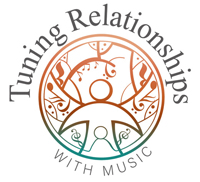Imagine this scenario – you have survived a terrible and traumatic time in the context of a relationship with someone you trusted, and now you are ready to heal. You see someone qualified and caring to talk to about what has happened. Talking helps – perhaps even a great deal. In talking about the trauma, you realise that you are not alone. You learn different perspectives and strategies to not just manage the after-shocks, but to ease their intensity.
But somehow all of this seems less helpful when you are in the middle of a difficult interaction with your child or your partner. The tone of their voice, the expression of their face, the way they hold themselves when they are angry registers in your body and your emotions in a place that talking doesn’t reach.
Trauma theory teaches us that traumatic memories are stored in our bodies and our senses. This is even more likely to be the case when those memories were formed while our bodies and brains were still developing in childhood.
What does this mean? It means that memories show up as powerful sensations in our bodies, and intense emotions that seem to come out of nowhere and disable our ability to think. We need a circuit-breaker, a way to soothe our bodies and senses, something that will signal we are safe now. Even though my child or my partner might seem terrifying in that moment, we can find the part of ourselves that can separate what is happening now from what happened at the hands of an abusive or neglectful person in the past.
Music or sounds that have certain qualities – perhaps a steady beat at the pace of a resting heart-rate, or at a pitch that is in the frequency range of a soothing human voice – can provide this circuit-breaker. Even better – we don’t have to access music or sounds outside of our own bodies to take advantage of this! We can make sounds with our breath or our voice, we can tap our foot or gently masssage our body to send the safety signal to our brain.
For more information about some of the theory behind these ideas, you may wish to check out the work of Bessel van der Kolk at https://www.researchgate.net/publication/13844895_The_Body_Keeps_the_Score_Memory_and_the_Evolving_Psychobiology_of_Posttraumatic_Stress
Author: Vivienne Colegrove
